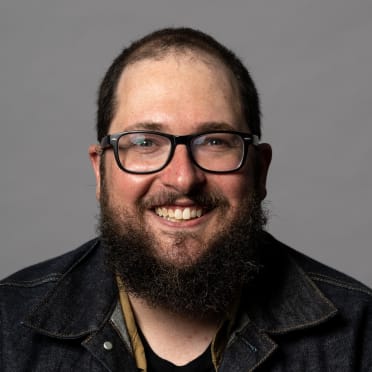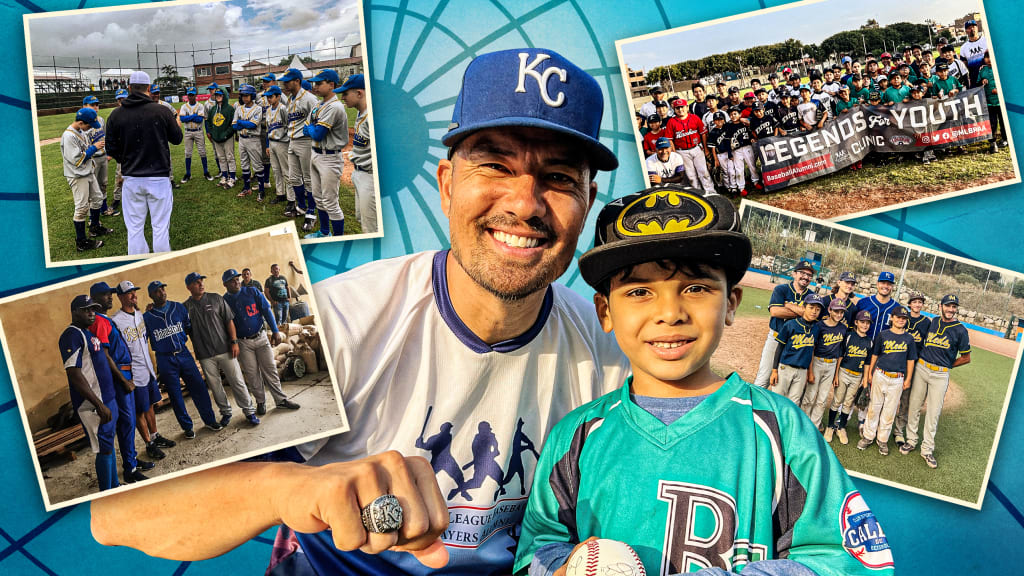
Jeremy Guthrie was just 19 years old when he was faced with a question that would forever change his life. The right-hander had been selected in the 15th round in the 1997 Draft by the Mets and he had to choose: Sign with the team or head to Spain for his two-year mission trip with the Church of Latter-Day Saints.
Though he was a late-round pick, he had the kind of upside that was clearly apparent to the scouts who saw him pitch. It was enough that then-Mets GM Steve Phillips flew the young pitcher to New York for a bullpen session and a discussion that would hopefully end with Guthrie signing his name across the dotted line.
Guthrie wanted the best of both worlds, though.
"Is there any way to make an arrangement in which I sign, but I'm also permitted to spend those two years away?" Guthrie asked.
Phillips told him that there was no way to do it. He'd have to make the choice.
"For you, it's baseball now or it's other pursuits and we'll support you in either of those, but it's not like you're going to get a chance to be drafted again after two years away," Phillips said. "This is once in a lifetime."
"I decided that moment that I would in fact pursue what I knew was most important to me at that time," Guthrie told MLB.com over Zoom. He turned down the Mets' offer and headed to Spain, where he would live the next two years, never once playing baseball while there.
"During the two years, I did nothing physical outside of walk," Guthrie said. "I averaged about nine miles a day walking, because that's how we got around. That's how we connected with people. We visited them in their homes, and we talked to people on the streets. So I walked a lot, but I did no exercise. I didn't even really do push-ups. I certainly didn't go to a gym. I never threw a baseball, but maybe once or twice. And that was actually a fun thing."
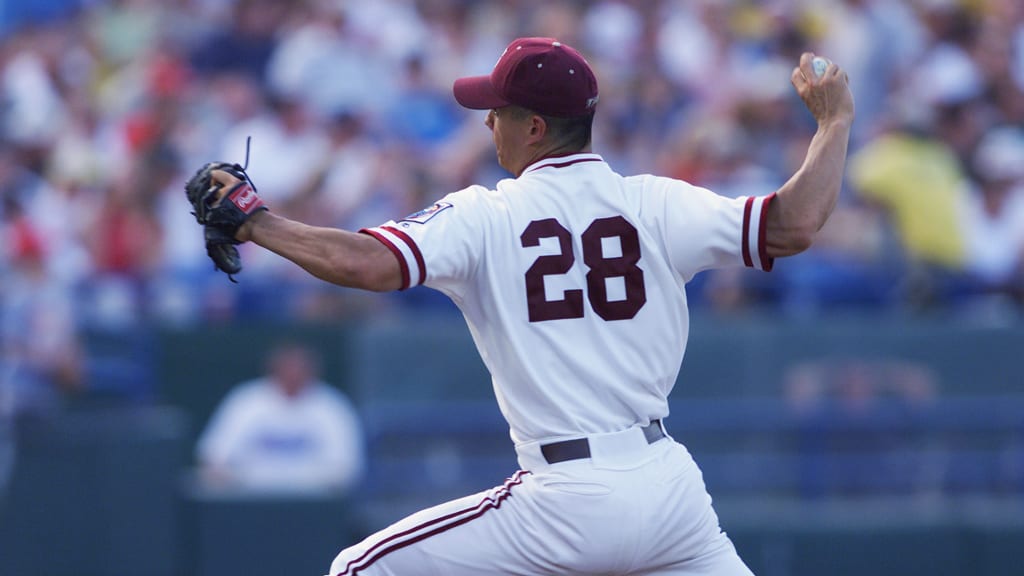
From there, you know the story: Guthrie attended Stanford after returning from his travels and he would be drafted again, this time in the first round by Cleveland in 2002. While Guthrie went on to have 13 years of Major League success -- including five 200-plus inning campaigns as a rotation stalwart for the Orioles and Royals and two trips to the postseason with Kansas City in '14 and '15 -- those two years in Spain were life-changing. For a young man who had yet to leave North America, it opened his eyes to a world beyond baseball and the United States.
It also gave Guthrie another dream, one that he was interested in even as his Major League hopes were coming true: Guthrie wanted to see the world, and even more importantly, he wanted to meet people who played baseball all over the world.
(Years later, Guthrie would run into Phillips -- now an analyst at MLB Network -- at the last game in Yankee Stadium history. Guthrie went up and introduced himself to Phillips, asking if he still remembered who he was. "Jeremy, I know you are, and I was clearly wrong," Guthrie remembers Phillips saying. "Not having enough understanding of people like you is what causes someone like me to get fired.")
That seed which was first planted in Spain bloomed into a vision for his future when the right-hander played with the Águilas Cibaeñas of the Dominican Winter League in 2006-07. Able to speak Spanish, Guthrie would often walk to the ballpark, stopping to play with the kids he passed on the way.
"When I would walk, I would see kids out there doing the typical things that you assume -- swinging a little broomstick or some makeshift bat, hitting anything they could come up with, whether it was a rock a bottle cap or an actual ball," Guthrie said. "I would play with the kids on the way and they had no idea who I was. They just had love and passion for the sport. That's what they did. It wasn't the cartoons and the video games or even soccer, it was just baseball. That's what young kids love to do in this country. And that really obviously planted a big seed in my heart of just how great this game is and what it means to people globally."
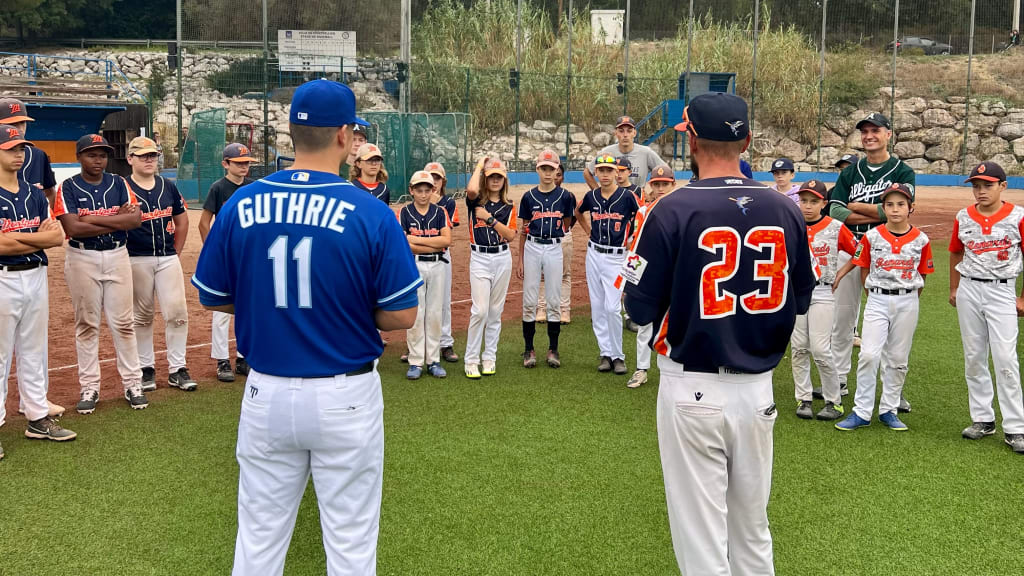
As he aged into his 30s and he saw the end to his big league career in the not-so-distant future, Guthrie started dreaming of playing all around the world, in any country that would have him. While there were some 15-or-so professional and semi-professional leagues in action, there was one big problem for the righty: He was still in the midst of a big league career and places like Japan and Korea were too good to simply take on someone once his big league days were done.
"I told my agents, what if I played in all of [the leagues], and Major League Baseball followed me and we just documented what baseball looks like globally?" Guthrie remembers asking. "We [the Royals] ended up winning the World Series in '15, but a year later, I don't think he was super fond of the idea, like, 'Hey, you still have Major League tread.'"
While Guthrie may not have had a chance to explore the entire world as his abilities kept him in the Majors, he still found a way to suit up for the Melbourne Aces in the Australian Baseball League and the Acereros de Monclova of the Mexican League. Now, he saw what baseball was like all around the world and from a very unique vantage point: on the mound.
"As my career was wrapping up, Australia was motivated by an intention," Guthrie said. "No. 1, I'd always wanted to go to Australia as a young boy. That was one of those places that I always mentioned to people like, 'Hey, if you go anywhere, where did you go?' And I just put say, 'Australia,' not for any particular reason other than maybe seeing a koala bear or a kangaroo."
Guthrie then played agent for himself to get to Mexico.
"I called up Mexico on my own. I said, I'd love to come pitch for you. Can I come pitch?"
Though arm injuries would mean the end of Guthrie's playing career in 2017, he hasn't strayed far from the game. When he's not on the mic calling Royals games, Guthrie still travels around the globe, finding baseball wherever it's played. He dreams of being an Anthony Bourdain for the international circuit.
He's hired his own videographer and editor to travel with him and shoot footage, believing that making something tangible will be far more impactful than simply writing a script or sending along a pitch deck to a studio head.
"When I have an idea, I'm not just throwing an idea out there, and then saying, 'Oh, I wish it would have worked,'" Guthrie said. "I'm pursuing it. And so I've been pursuing it how best I can for the past eight years."
It's led Guthrie back to Spain, where he helped coach a 15-U team, while sleeping in a nearby campground with the other coaches and players.
"I was there every single day with the kids for their five games," he said. "We played and slept with them in the little camping area that we had outside of Gijón, another incredible city in northern Spain, and just got to know the kids. This one was more personal than it was like, 'Hey, I'm gonna come in and teach you baseball and try to make this big splash in two days, and then take off and never see you again.' But this was friendships and relationships."
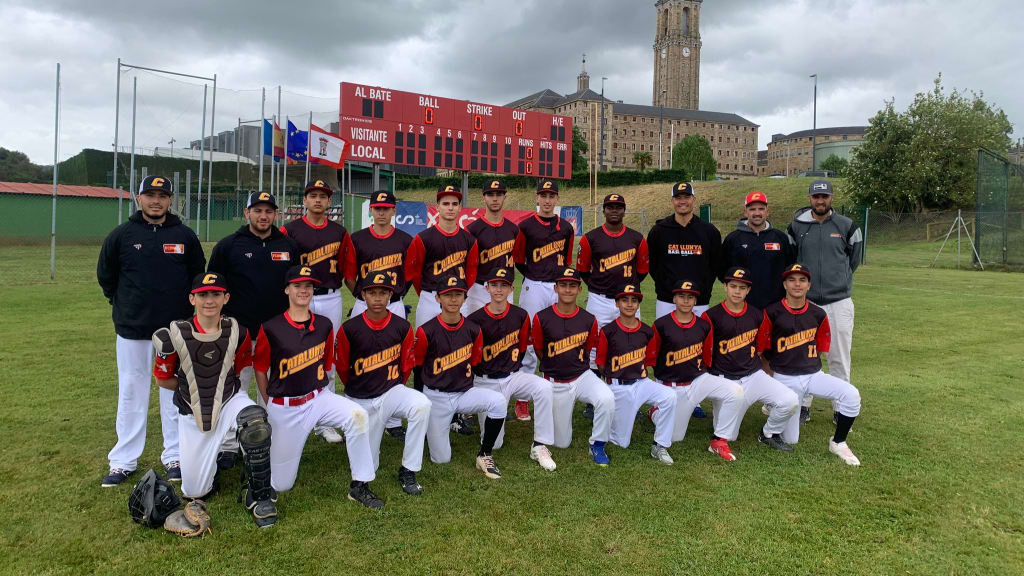
It's taken him to Bulgaria, where baseball was born when a few college students became interested in the game in the 1980s, soon growing to encompass 20 teams and a fledgling ballplaying community. He's held the "bible" of Bulgarian baseball, a rulebook created by a Japanese gentleman who still lives in Bulgaria that "almost every kid that's ever pitched in Bulgaria has probably had a copy or read over the years."
It's led Guthrie to marvel at how baseball can so easily grow once people are exposed to the sport. Far from needing millions of dollars and tons of infrastructure, it simply needs a chance, a spark.
"If you can present the sport to them, if they can see it, if they can witness it, if they can play it, it speaks for itself," Guthrie said. "It'll grow on its own, there doesn't need to be millions of dollars behind it necessarily. Like Bulgaria didn't have anything behind it, except a few guys that liked it."
Guthrie's work has made a difference and it's been noticed by more than just the children and coaches who have learned from the former big leaguer. MLB's Deputy Commissioner Dan Halem has seen the impact of what Guthrie has done up close.
"Jeremy has been a tireless advocate for growing the game internationally, particularly in countries where baseball is not established," Halem wrote in an email. "As a respected former player, Jeremy’s willingness to take a leadership role in MLB’s international efforts, and recruit other former players to join him, will pay dividends in the future. Jeremy’s willingness to roll up his sleeves and his passion for personally introducing baseball and softball to youth has made him a uniquely effective international ambassador for baseball. There is no better way to generate interest and excitement in the game than being coached by a player who pitched in the Major Leagues for more than a decade."
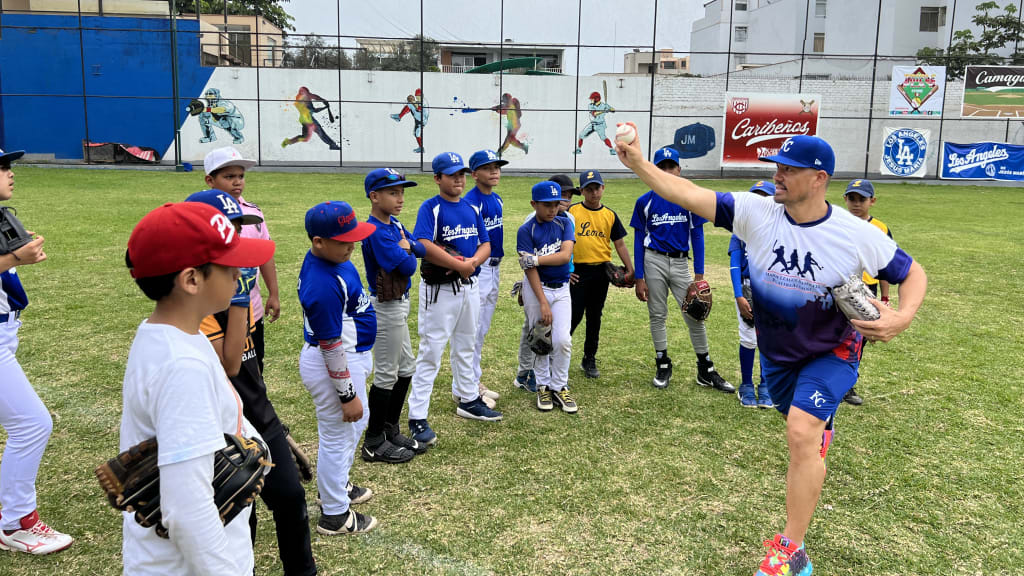
Guthrie's travels have taken him to Peru, France, Italy, Cuba, China and Japan, to name but a few. His passport likely has more stamps inside it than a post office. If there's baseball being played, then Guthrie wants to be out there -- whether he's helping young players get the most out of their game or in front of a camera helping share the stories that are found around the world.
"The stories are there, the product is there. I just want to help create it and be a part of it, because it just lights me up and gets me excited," Guthrie said. "I think it's good for the game. It's good for people to know just how amazing baseball is and what it looks like globally."
